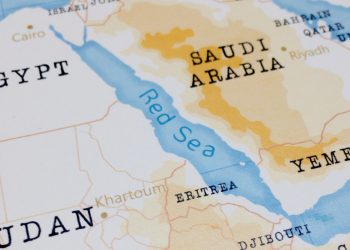Session 39th, from 22 to 26 September 2014
IMO held theFacilitation Committee (FAL), 39th session from 22 to 29 September 2014. Four items were on the FAL 39 agenda of particular interest to operators which are now described as follows :
e-Business Possibilities for the Facilitation of Maritime Traffic
A Working Group on Electronic Means for the Clearance of Ships was formed under the chairmanship of Mr R Butturini (USA). Following the WG’s report, the Committee:
1. Agreed that electronic certificates should be used as an equivalent to traditional paper certificates, provided that the certificates and the website used to access them, conform to the guidelines and that specific verification instructions are available on board the ship;
2. Agreed that electronic certificates viewed on a computer should be considered as meeting the requirements to be ‘on board’, and invited MSC, also MEPC, to take appropriate action reflecting this understanding;
3. Noted WG discussions related to the development of technical standards for the harmonised application of technology solutions to implement electronic certificates for ships, agreeing further consideration by a re-established Correspondence Group (CG);
4. Agreed a proposal to modify the module ‘Survey and certification’ of GISIS so as to include references to Administrations issuing electronic certificates, making such information accessible to the general public;
5. Approved a revised version of FAL.5/Circ. 39 on ‘Guidelines for the use of electronic certificates’; and
6. Re-established the CG on Electronic Access to Certificates and Documents with the following terms of reference:
- continue to gather experience with the implementation and use of electronic certificates and propose revisions to the guidelines, as needed;
- develop a model framework for implementing electronic certificates;
- consider alternatives to the need for using traditional signatures, stamps and seals to issue and approve electronic certificates;
- advise the Committee on possibilities for industry standards to support use of electronic certificates; and
- submit a report to FAL 40.
Formalities connected with the arrival, stay and departure of persons
Following decisions taken at FAL 38, two new facilities were introduced to the IMO’s Global Integrated Shipping Information System (GISIS), namely ‘Notifications’ and ‘E-addresses’, both of which are available for public access. This ‘Facilitation of International Maritime Traffic (FAL) module’ allows access to the following information:
1. report on stowaway incidents;
2. report on unsafe practice associated with the trafficking on transport of migrants by sea;
3. information on Contact Addresses of Designated National Authorities and International Organisations for Facilitation purposes; and
4. information on E-addresses of Governmental Authorities for facilitating the exchange of electronic information.
Under the formalities connected with the arrival, stay and departure of persons, three categories were further discussed:
- Stowaway Incidents. The total number of reports received by the IMO until 1 September 2014 has been 4,392 involving 13,812 stowaways. However, when compared with P&I Club figures for comparable periods, the IMO numbers appear to show a huge under-estimate. In spite of the new facility provided in GISIS, there is a marked downward trend of notifications resulting in a low number of reports (only 70 stowaway cases and 203 stowaways in 2013). Member States were urged to improve their reporting record on such cases making better use of GISIS.
- Illegal migrant incidents. As with stowaways, the number of notifications received in the last two years has significantly decreased with only one incident reported in 2013. The actual numbers of illegal migrants and persons rescued at sea were significantly higher than those reported in GISIS but the discrepancy may have something to do with the complexity of the reporting system in GISIS which requires completion of some 59 data fields.
- Persons rescued at sea. Not surprisingly, discussion regarding the Mediterranean region was the main focus of attention. Following a number of tragic accidents, including that of 3 October 2013 when a boat carrying migrants from Libya to Italy sank off Lampedusa island with more than 360 deaths, and 8 days later another boat sank off Malta with at least 34 deaths, IMO reactivated discussions on a draft regional agreement. Three meetings of the Member States involved have since taken place and a second, formal one, is to be set up shortly. A further 100,000 to 150,000 migrants are forecast to arrive in Europe during the second part of this year, but Coast guard and rescue vessels cannot deal with the large numbers of people needed to be picked up at sea and assistance of merchant vessels is required on a daily basis; in this connection concerns were expressed regarding the safety and security of such vessels transporting large numbers of migrants together with the heavy burden upon administrations and shipping companies involved. Taking into account that FAL 40 will not convene in the current biennium, the target completion year for this item was extended to 2016.
Ship/ Port Interface
FAL 38 agreed to finalise trials of a mechanism established at FAL 34 for the resolution of difficulties in the carriage of IMDG Code class 7 Radioactive Materials, and to leave it on a permanent basis until the problem is resolved. Technical meeting ISC-8 recommended setting up a ‘Denials Working Group’ reporting to the IAEA Transport Safety Standards Committee (TRANSSC) and this will be comprised of representatives from IMO, ICAO, UNECE and IAEA Secretariats focussing on regulations for the transport of radioactive material in all modes of transport. The proposed working group will be renamed the ‘Transport Facilitation Working Group’, terms of reference for which will be developed in the next 12 months.
Technical cooperation activities related to facilitation of maritime traffic
Although this appeared to be an agenda item of interest to InterManager Members it nevertheless very much calls for action by IMO Member States.
Guidelines on minimum training and education for mooring personnel
A Working Group was established under the chairmanship of Captain Moises De Gracia (PANAMA) which did not sit until day 3 of the meeting thus not leaving enough time to debate what became a contentious matter. The WG comprised 20 Member States assisted by 5 NGOs and by all accounts, it was not a meeting of minds to the extent that 3 Member States walked out during deliberations. Unusually also, the Report of the Working Group was not approved by the Committee, in the light of subsequent opinions expressed in Plenary, that a better definition of ‘Mooring Personnel’ is essential, also that Member States need to be better informed as to how the sector operates in each other’s countries. Following a prolonged debate, the Chairman summed up that a correspondence group should not be established but that the matter should be further discussed in capitals and in the interim, papers on the item should be submitted to FAL 40.
Source: InterManager






























































